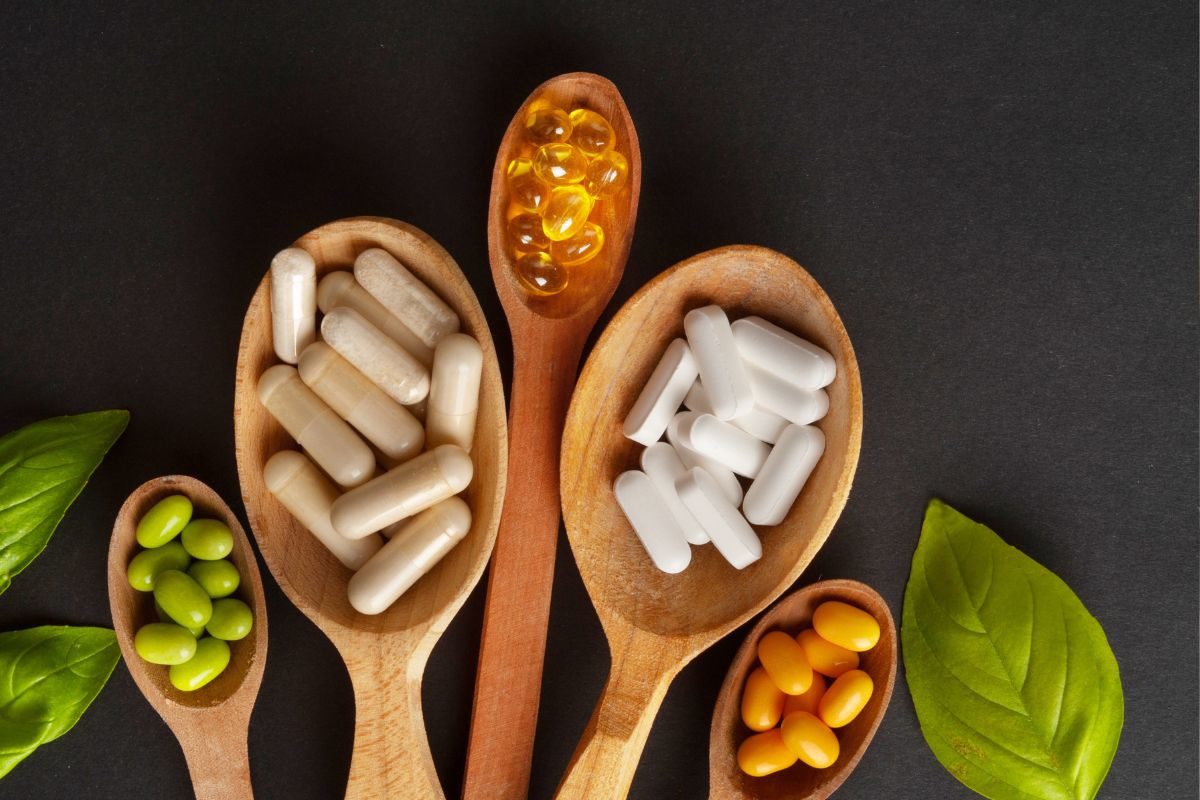30 seconds summary
- Herbal supplements offer numerous benefits for senior health and wellness. They can support immune function, reduce inflammation, improve cognitive function, and promote heart health.
- Popular herbs like turmeric, ginseng, and ginger are known for their anti-inflammatory and antioxidant properties, helping to manage conditions like arthritis and boost energy.
- Additionally, herbal supplements may aid digestion, improve sleep quality, and enhance overall well-being. However, seniors should consult healthcare providers before using them to avoid interactions with medications or underlying conditions.
As individuals age, maintaining optimal health becomes more of a priority. Seniors often face various health challenges, such as chronic illnesses, diminished energy levels, and a decline in overall well-being. One of the most common conditions among seniors is diabetes, particularly type 2 diabetes, which affects a significant portion of the aging population. Managing diabetes effectively is critical to preventing complications and enhancing quality of life. While conventional medicine, lifestyle changes, and diabetes care services are essential, many seniors are increasingly turning to herbal supplements to support their health and manage their condition.
Herbal supplements are natural, plant-based products that can complement traditional medical treatments. Many of these herbs have been studied for their potential to help manage blood sugar levels, enhance insulin sensitivity, reduce inflammation, and improve overall wellness—benefits that are particularly crucial for seniors with diabetes. By working alongside traditional methods, herbal supplements can provide a holistic approach to managing diabetes, supporting both physical and mental well-being.
In this article, we will explore the benefits of herbal supplements for senior health and wellness, focusing on their role in diabetes care. We will examine the most commonly used herbal remedies, their mechanisms of action, and the evidence supporting their use in managing diabetes and promoting overall health in seniors.
1. Understanding Diabetes in Seniors
Diabetes is a condition that affects how the body processes blood sugar (glucose). There are two primary types: type 1 and type 2 diabetes. Type 2 diabetes is the most common form, especially in older adults, and it occurs when the body becomes resistant to insulin or doesn’t produce enough insulin to maintain normal blood sugar levels.
In seniors, uncontrolled diabetes can lead to a range of complications, including heart disease, kidney failure, neuropathy (nerve damage), vision problems, and poor wound healing. Therefore, managing blood sugar levels is essential to prevent these complications and maintain a good quality of life.
Lifestyle changes such as a balanced diet, regular physical activity, and weight management are critical in diabetes management. However, more and more seniors are also incorporating herbal supplements into their health routines, as these natural products can offer additional benefits.
2. Herbal Supplements for Diabetes Management
Several herbs have been found to help manage diabetes by regulating blood sugar levels, improving insulin sensitivity, and offering anti-inflammatory properties. Below are some of the most well-known herbal supplements that have shown promise in supporting diabetes care:
a. Cinnamon (Cinnamomum verum)
Cinnamon is one of the most widely studied herbs for diabetes management. It contains compounds like cinnamaldehyde, which may help improve insulin sensitivity and lower blood sugar levels. Studies have shown that cinnamon can reduce fasting blood glucose levels and HbA1c, an indicator of long-term blood sugar control. For seniors, this can be particularly beneficial in controlling blood sugar levels without relying solely on medication.
Cinnamon may also help reduce inflammation and oxidative stress, which are often elevated in individuals with diabetes. However, it is important to note that while cinnamon has potential benefits, it should be used in moderation, as excessive amounts may have adverse effects, especially on liver health.
b. Berberine
Berberine is a compound found in several plants, including Goldenseal, Oregon Grape, and Chinese Goldthread. It has garnered attention for its ability to help lower blood sugar levels and improve insulin sensitivity. Berberine works by activating an enzyme called AMP-activated protein kinase (AMPK), which plays a role in regulating glucose and fat metabolism.
Research has shown that berberine can lower blood sugar levels and HbA1c, making it a promising option for seniors with type 2 diabetes. It may also help reduce cholesterol levels, making it a useful supplement for seniors with diabetes, as they are at a higher risk of cardiovascular disease.
c. Ginseng (Panax ginseng)
Ginseng is an adaptogenic herb that has been used for centuries in traditional medicine. It has shown potential in improving insulin sensitivity and lowering blood sugar levels in individuals with type 2 diabetes. The active compounds in ginseng, such as ginsenosides, may help enhance insulin secretion and reduce insulin resistance.
Several studies have suggested that ginseng can help lower fasting blood glucose levels and improve post-meal blood sugar control. Seniors with diabetes may benefit from incorporating ginseng into their daily routine, as it can also provide energy-boosting effects and reduce fatigue, which is common in older adults with diabetes.
d. Fenugreek (Trigonella foenum-graecum)
Fenugreek seeds are rich in soluble fiber and have been traditionally used to manage blood sugar levels. Fenugreek has been shown to help improve insulin sensitivity and regulate blood sugar levels by slowing down the absorption of carbohydrates. The high fiber content can also help improve digestive health, which is important for seniors with diabetes who may be prone to gastrointestinal issues.
In addition to its blood sugar-lowering effects, fenugreek may also help reduce inflammation and improve lipid profiles, which are often abnormal in seniors with diabetes. Its ability to regulate blood sugar levels without causing sharp spikes or drops is a key benefit for individuals seeking a more natural approach to diabetes management.
e. Bitter Melon (Momordica charantia)
Bitter melon is a tropical fruit that has long been used in traditional medicine to treat diabetes. It contains compounds that mimic the action of insulin, helping to lower blood sugar levels. Bitter melon is also rich in antioxidants, which help reduce oxidative stress and inflammation, common issues in people with diabetes.
Several studies have shown that bitter melon can help lower blood glucose levels and improve insulin sensitivity. It may also offer additional benefits for seniors with diabetes by promoting weight loss, improving cholesterol levels, and supporting heart health. However, seniors should be cautious when using bitter melon, as it can interact with insulin and other medications, potentially leading to hypoglycemia (low blood sugar).
f. Turmeric (Curcuma longa)
Turmeric, particularly its active compound curcumin, has powerful anti-inflammatory and antioxidant properties. Chronic inflammation is a hallmark of diabetes, and turmeric has been studied for its potential to reduce inflammation and improve insulin sensitivity. Research has shown that curcumin may help lower blood sugar levels, reduce insulin resistance, and improve lipid profiles in individuals with type 2 diabetes.
In addition to its anti-inflammatory benefits, turmeric can support cardiovascular health, which is crucial for seniors with diabetes, as they are at a higher risk of heart disease. The anti-inflammatory effects of turmeric may also help alleviate joint pain and other complications associated with diabetes, such as neuropathy.
3. Additional Benefits of Herbal Supplements for Senior Health
In addition to their role in managing blood sugar levels, herbal supplements can offer a wide range of benefits for seniors beyond diabetes care. Some of these include:
a. Improved Cognitive Function
As seniors age, cognitive decline becomes a concern. Herbal supplements such as ginkgo biloba, bacopa monnieri, and ashwagandha are known for their ability to improve memory, focus, and overall cognitive function. These herbs can also help reduce the risk of age-related neurodegenerative diseases like Alzheimer’s and Parkinson’s disease.
b. Better Sleep Quality
Seniors often struggle with sleep issues, such as insomnia or frequent waking. Herbs like valerian root, chamomile, and lavender have calming effects that can promote better sleep. These herbs can help reduce anxiety, alleviate stress, and improve sleep quality, which is essential for maintaining overall health and wellness.
c. Enhanced Immune Function
The immune system tends to weaken with age, making seniors more susceptible to infections. Herbs like echinacea, elderberry, and astragalus can help boost the immune system and protect against common illnesses. These herbs may also have antiviral and antimicrobial properties, further supporting senior health.
d. Digestive Health
Digestive issues, such as constipation, bloating, and indigestion, are common in older adults. Herbal supplements like peppermint, ginger, and fennel can promote healthy digestion, relieve discomfort, and improve gut health. Maintaining digestive health is important for seniors, as it impacts overall well-being and nutrient absorption.
4. Considerations and Precautions
While herbal supplements can offer numerous benefits, seniors should approach their use with caution. Here are some important considerations:
- Consult with Healthcare Providers: Before incorporating any herbal supplements into their routine, seniors should consult with their healthcare provider to ensure there are no potential interactions with medications or underlying conditions.
- Quality and Dosage: The quality of herbal supplements can vary significantly between brands. Seniors should choose reputable brands that offer standardized doses to ensure efficacy and safety.
- Monitor Blood Sugar Levels: Some herbs, like bitter melon and cinnamon, may significantly lower blood sugar levels. Seniors should monitor their blood sugar levels closely when using these herbs to prevent hypoglycemia.
Conclusion
Herbal supplements can provide a natural, complementary approach to managing diabetes and promoting overall health and wellness in seniors. Herbs like cinnamon, ginseng, berberine, and turmeric offer significant potential in supporting blood sugar regulation, improving insulin sensitivity, and reducing inflammation, all of which are critical for diabetes care.
However, seniors should always work with their healthcare providers to ensure safe and effective use of herbal supplements. When combined with a healthy diet, regular exercise, and appropriate medical treatment, herbal remedies can play a valuable role in helping seniors maintain their health and vitality as they age.




